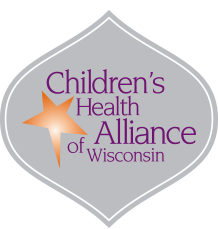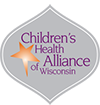School boards, government officials and families are weighing many variables on how children and staff can safely return to school this fall during the COVID-19 pandemic. As we keep the safety of students and staff a top priority, Children’s Health Alliance of Wisconsin and the Wisconsin Asthma Coalition (WAC) would like to bring your attention to the needs of those with asthma, and how to open schools without compromising their health.
When returning to school, it will be important to think of students who suffer from pre-existing conditions while trying to prevent the spread of COVID-19. Current data shows “no increased risk of COVID-19 infection or severity of COVID-19 disease in people with asthma.”[1] However, tactics and strategies used to make an environment safe against COVID-19 may also pose a risk for people with asthma, specifically the use of harsh cleaning chemicals. To address these concerns, WAC partners have gathered information and created tools to aid with the transition back to school. The Asthma and Allergy Foundation of America has an extensive checklist that breaks down school spaces into manageable areas for cleaning and other recommended policies, including:
- Identifying new COVID-19 school policies that could impact students and staff with asthma.
- Creating asthma-friendly school spaces that can also help prevent the spread of COVID-19.
- Specific COVID-19 protocols for school nurses and staff managing asthma.
- Developing individual asthma management plans for each student.
Other re-opening tool kits that the WAC supports are those from the Wisconsin Department of Health Services and CASEL. These tools take different approaches to making decisions about reopening (one focused on policy implementation and the other on social-emotional learning). We urge all schools and partners to utilize these resources and follow the recommendations within.
WAC staff have an abundance of resources to help you prepare for a healthy 2020-21 school year. We offer free virtual school walkthroughs to identify asthma triggers and recommend low-cost remediation tactics. Our asthma education is specifically tailored to facility staff and families, such as medication assistance and green cleaning tips. Please contact Brittany Farrell (bfarrell@chw.org) to discuss how these options can be implemented at your facility.
[1] Asthma and Allergy Foundation of America. https://www.aafa.org/managing-asthma-and-covid19-in-school


